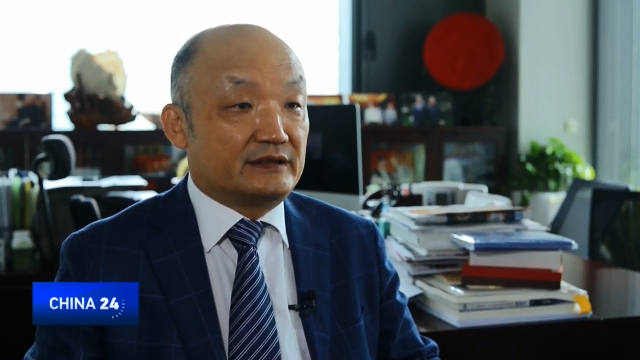
21:04, 22-Jul-2018
'Dying to Survive': Dark comedy triggers national debate on drug prices
Updated
21:00, 25-Jul-2018
02:15

The film touches the "social wound" of unaffordable cancer drugs in China. What inflicts this wound, and what can heal it? We talked to experts to find out.
China is a key growth market for cancer drugs. But the market relies heavily on imported treatments, especially target drugs like Gleevec. To develop such medicine can take more than 10 years and cost two to three billion dollars.
SONG RUILIN, EXECUTIVE PRESIDENT CHINA PHARMACEUTICAL INNOVATION & RESEARCH DEV'T ASSOC. "Drugmakers must be rewarded with reasonable profits. We can only cut EXCESSIVE costs. If drugmakers can't make reasonable profits, the companies will vote with their feet and leave the market. Then what can patients do?"
High prices come from high costs, and there are other factors as well. The nation's medical insurance program covers most of its people, but it remains highly focused on basic medical care, thus cancer treatments are usually beyond its reach.
LIU GUO'EN, PROFESSOR OF ECONOMICS CHINA CENTER FOR HEALTH ECONOMIC RESEARCH, PKU "We're not just dealing with cancer drugs alone, we're dealing with many many diseases."
China's drug expenditures account for 30 to 40 percent of its total medical expenditures - a very high figure compared with other countries. And, due to misuse of funds, some of the money doesn't cover the drugs. Professor Liu says the healthcare system needs a thorough revamp.
LIU GUO'EN, PROFESSOR OF ECONOMICS CHINA CENTER FOR HEALTH ECONOMIC RESEARCH, PKU "Because the physician time and medical services are constrained to a relatively low level, the high drug prices were partially paid for the under-paid services."
After the movie sparked a heated debate on who's to blame, officials also took action. China's medical insurance regulator recently held negotiations with domestic and overseas pharmaceutical companies about lowering cancer drug prices. Insurance providers are discussing whether to put more medicines on the reimbursement list. Premier Li also weighed in, urging regulators to speed up price cuts for cancer drugs and reduce the burden on families. Patients welcomed the moves, because in the race against cancer, every second counts.

SITEMAP
Copyright © 2018 CGTN. Beijing ICP prepared NO.16065310-3
Copyright © 2018 CGTN. Beijing ICP prepared NO.16065310-3